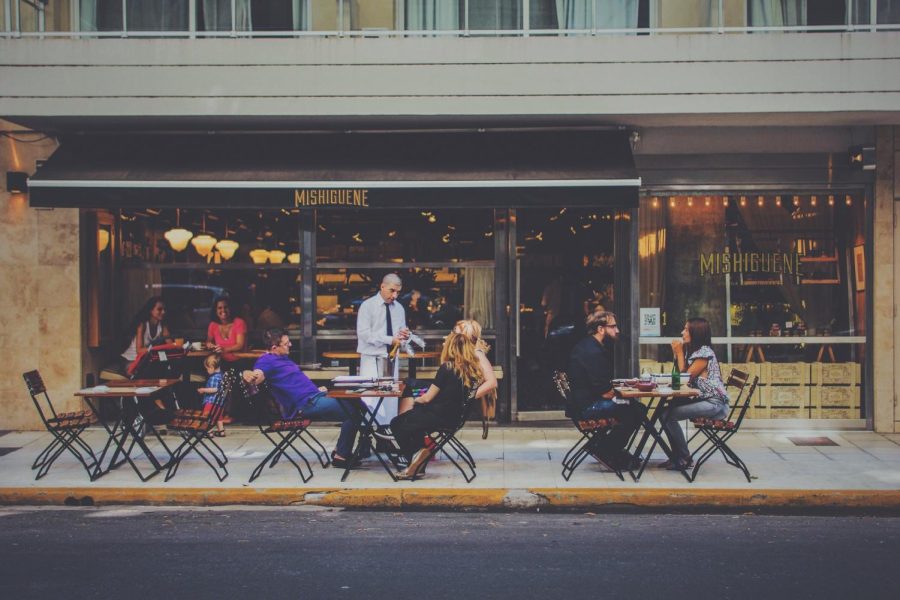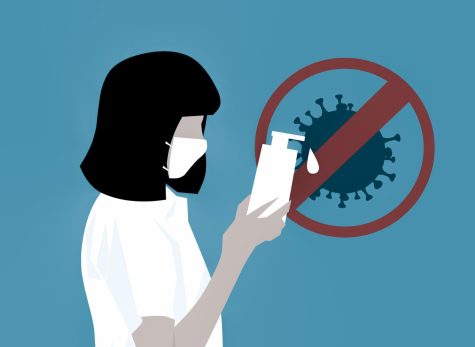BEYOND | The New Normal for Restaurants and Dining
To say the least, the damage that the restaurant industry has taken from the pandemic has been hard for it to digest.
One of the primary activities that has been affected by the pandemic from the start is the activity of dining in. The proliferation of the coronavirus temporarily put the restaurant industry in a headlock, with many restaurant owners worrying their establishment’s existence was truly on the line for months.
Several directives have led people to order takeout and some restaurants have begun to reopen for in-person dining, with or without mitigations. On top of that, shipments of food and goods for the restaurant have begun to be affected by supply-chain issues.
Nick Faulkner, owner of Baskin-Robbins on Chatham Rd. In Springfield, says that even though COVID-19 did not have a direct effect on shipments at first, prices have started to rise in the last six months by 10%.
“It [the pandemic] is definitely happening and real. It will probably begin to slowly impact customers as well,” says Faulkner.
Faulkner adds that sales have steadily improved due to the introduction of the vaccine this year.
“Sales definitely are not where they would be without the pandemic,” Faulkner said, but he insists that “the vaccine has helped people get out and is helping people deal with the pandemic.”
In regard to ending the pandemic, Faulkner insists people are “gonna have to wear a mask and be patient.”
Apropos the recent boost of sales, he believes that the current blemishes pertaining to service are permanent.
“Our impact is affected by [the] labor force, which directly impacts the labor economy,” said Faulkner.
He said he is unhappy with the amount of people who are unwilling to work in a time where it should be easier than normal to get a job, citing that “you can’t pay people to stay at home and not work.”
“Sales and service have been 100% affected,” said Scott Hulbert, kitchen manager of Fritz’s Wagon Wheel.
Hulbert notes that a lot of products he would normally get are currently not in stock, forcing him to change some of the sources of his supply.
“For example, it took me three months to get halibut because nobody had it,” said Hulbert.
While Hulbert says the vaccine may have helped improved sales this year since Fritz’s now “can do more than curbside,” he does not have faith that service is going to improve in the future and feels that the pandemic has changed the service industry for good.
“Trying to hire people and get people to work is hard, so I don’t see it changing. I see it as a permanent effect on service that it can’t ever bounce back from,” said Hulbert.
Like the restaurant industry, food markets have also experienced setbacks. This, in turn, can be another deteriorating factor for a number of restaurants.
Regarding shipments, Gabi Turley, manager of Robert’s Seafood, claims her business has had “a harder time as of recently with some vendors receiving items, delaying delivery times or sometimes not delivering at all. That has been tough.”
Despite expounding an “astronomical” boost of sales in 2020, Turley seemed uncertain yet hopeful as to whether sales and shipments will return to normal form when the pandemic merely becomes a memory.
“More people will feel more at ease to be in public more comfortably and it won’t be as tense, so I can see sales continuing to grow. (…) I think people have learned a lot about cooking and staying at home with COVID, so I can see sales continuing to grow.”
Could one of the permanent scars that COVID-19 leaves on the world, at least in the USA, be the degeneration of indoor dining?
With the luxury of dining in at restaurants being stripped from citizens, this will prevent many from not only the opportunity to simply sit down and have a meal, but to miss out on making the memories one can make while eating at a restaurant. If things continue to get worse, countless people who have not been born yet may not even get to experience indoor dining, an activity that may have seemed so casual any year before 2020. Without being able to dine in, one may have a harder time being enveloped in the atmosphere of what really makes a restaurant, whether it is a group of friends, family or a person/people who tried their best by creating a business to do what they love – not only to get paid but to provide others with one of life’s greatest necessities in their own creative ways.
One cannot be sure what is in store for the indoor dining industry, yet one can assume that all restaurant owners, employees, customers, or at-home chefs are currently indulging in something in common- a world without COVID-19 or its regulations
Addison Keeley is a sophomore at Lincoln Land Community College. Once aiming to follow in his father’s footsteps as a chef, he is now aiming to get an associate’s degree in journalism in order to become a boxing journalist and commentator. When Addison is not at working (whether for money or school), he can be found reading comics, watching boxing or installments of the Ultraman franchise, and most importantly — researching each of those subjects to expand his knowledge on them.











